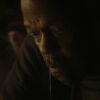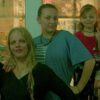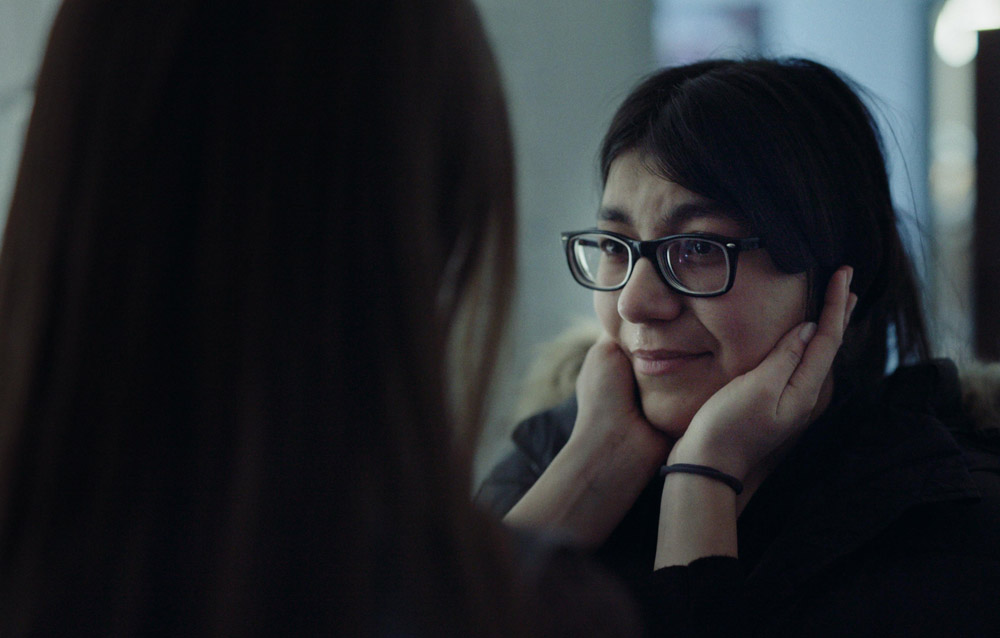In a film where a family of immigrants from Kurdistan find it hard to see the future after being driven from their home by the war, at least part of it looks startlingly clear to take a look Ayham, a young boy who’s grown volatile as his three brothers Mizgeen, Ghareeb, and Mateen, older sister Runa and father Baravan settle into a shelter in Poland in “Silent Trees.” He’s angry and restless, having seen things at his age that no one should after making the trek through the forest between Belarus and Poland in a bid to find asylum, and despite Runa’s best efforts, he can’t be calmed down. The bare walls and bunk beds of the supposedly safe space aren’t reassuring and though no one knows for sure quite yet, it looks like he’s seen the last of his mother Avin and while his sister and father are holding it together for the rest of the family, he cannot and possibly never will be able to fully again.
Such striking evidence of the devastating individual effects of Belarus’ cynical opening of a migration route through the wilderness in 2021, encouraging immigrants from such war-torn areas as Syria to flee to the other side where Polish authorities await with no desire to take them in allows director Agnieszka Zwiefka to keep the time she spends in the dangerous woods to a minimum, limiting herself largely to a stark single shot above the forest where any green signs of life are shrouded in snow. Instead, the director is able to chart less obvious topography emotionally for the Kurdish family as they try to adjust to a life of instability in Central Europe. Although Baravan is an admirable patriarch, he looks as lost as any of his children as an employee at the shelter notes after losing his wife and Runa emerges as a central pillar, taking over practical responsibilities such as making breakfast for the family but starting to absorb all their pain as well, able to lend an ear to her father when he needs it for a serious conversation or horsing around with her younger brothers when it could lift the mood. She should just be a teenager at 16, as a Billie Eilish poster she carries around is there to remind, but in the place of any curiosity is just a sense of determination to make it through to the other side, whether that be as far as Poland or as immediate as the end of another long day.
Following Runa’s lead, “Silent Trees” is more lighthearted at times when it needs to be and with a sensitive and surprisingly spry lens, Zwiefka never gives the sense that the family is stuck despite their bureaucratic-induced stagnation, with Baravan having to tell his eldest son to study when his own inability to grasp a new language is preventing him from getting work and while the family puts in the paperwork to obtain asylum, they hear horror stories from others about how long they may have to wait. Sadly, the story itself isn’t an rare one – a more hard-edged version can be seen later this year as Agnieszka Holland’s punishing drama “Green Border” is released internationally – but Zwiefka’s treatment is unusually touching as the audience can see what the family does as they choose to make the best of a bad situation without diminishing how difficult it is. A good example of these instincts can be seen in the animated thoughts of Runa, whose journal sketches come to life in a watercolor-like style that elegantly splashes off the screen yet depict the terror she’s holding inside in a palette limited to black and white. However, those are the only scenes in “Silent Trees” where there isn’t at least a little color to reflect that as dire a situation as the family find themselves in — and as the film notes plenty of others as humantarian crises around the world are leaving so many without a home — a life emerges with time and a bit of compassion.
“Silent Trees” will screen again at Hot Docs on May 5th at 5 pm at the TIFF Lightbox 1.




